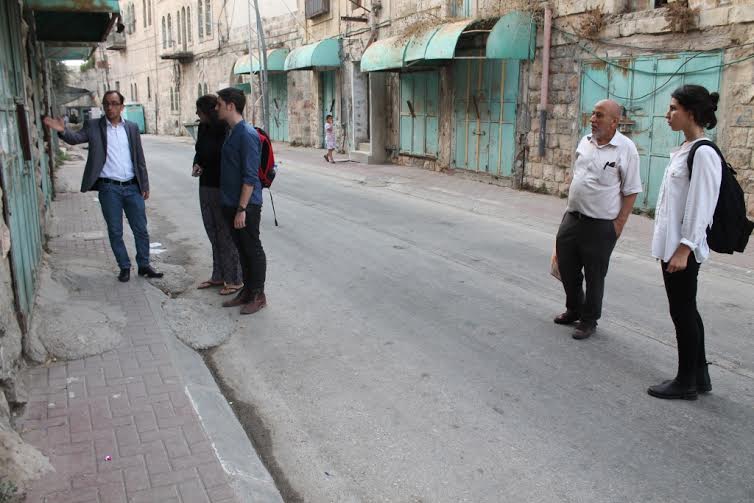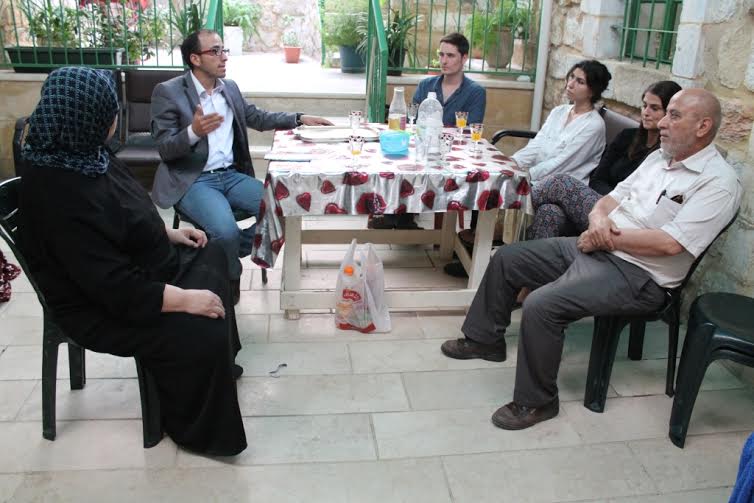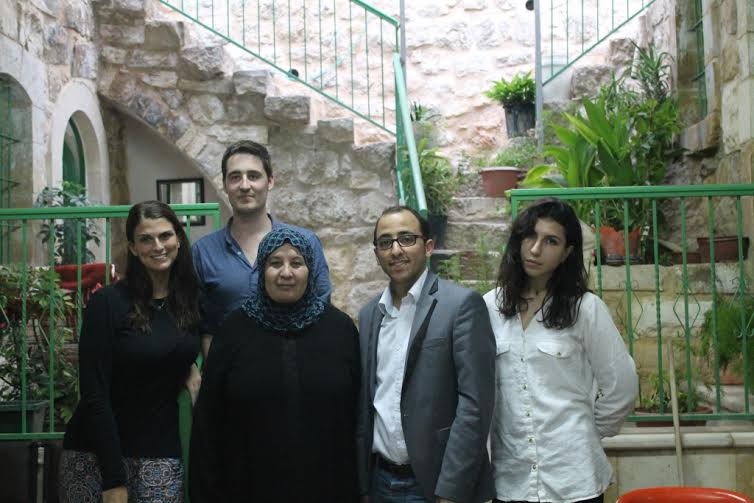Today, three international volunteers and three members of the Center took a trip down to the infamous Shuhada Street in the main heart of the city of Hebron, Palestine. The street is famous for its complete closure by Israel of more than 1,000 Palestinian livelihoods following the Second Intifada.
Palestinians are only permitted part of the way down Shuhada Street before they’re confronted with another checkpoint that marks the entrance to a long line of Israeli settlements. We had to go through an Israeli checkpoint in order to enter Shuhada Street itself, and we were given a brief introduction to the history of the street by Osama Abu Hussein before meeting the area’s most famous resident, Em Abed Salaymah.
We took some stairs up into the courtyard of her home where we were greeted warmly and given beverages while she talked to us about some of her experiences as one of the last remaining residents of Shuhada Street. We were informed that before the closure of all the shops on Shuhada Street, 85 Palestinian families resided within the street. After 26 years Em Abed Salaymah is one of 15 families still fighting the Israeli settlers for her family home. She’s endured much as an activist against the Israeli occupation of Shuhada Street, but what struck us most is the physical pain she’s suffered at the hands of Israeli soldiers during this life long protest, and the unsurprising harm it has brought to her personal life. In the process of her stand against Israeli settlers taking her home, her and her children have been arrested countless times, belongingness have been damaged and she was forced to make a heart-breaking decision in an ultimatum between staying married to her husband or staying with her home.
After hearing some of these experiences, the group took to the roof of her home where some of the scenes of her narrative had taken place. From it, we climbed another wall that took us to a rooftop Kindergarten for the local children in the area, who have been subjected to the same kind of treatment and yet refuse to leave their homes. While the Kindergarten is a beacon of colour and innocence for the community, it looks out onto an almost sinister view of the Israeli settlements that have taken over Shuhada Street immediately past the checkpoint. “Seeing it from that height perspective really provided me with a view of the stark contrast between the lives of Palestinians and Israelis I may not have seen as clearly elsewhere”. Sara Amin from the UK said:
We proceeded back down into the courtyard of Em Abed Salaymah’s home where we said our thanks and goodbyes and left for home. The stories surrounding the street are often more harrowing than included in this article, but with international recognition that the closure should not have taken/be taking place, one can only hope that the stories will stop there.




